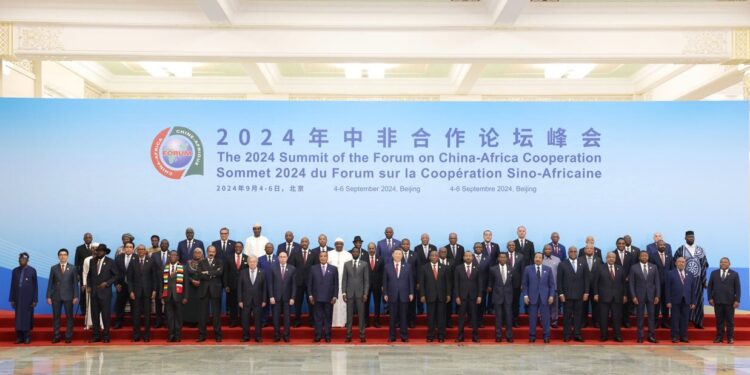China has announced that all 53 African countries with which it maintains diplomatic ties will now enjoy duty-free access for 100% of tariff lines when exporting to the Chinese market. This development expands on previous preferences limited to least-developed countries (LDCs), and reflects Beijing’s strategy to deepen economic relations with Africa amid ongoing global trade tensions.
Chinese President Xi Jinping made the announcement through a formal letter addressed to African foreign ministers. The policy was confirmed at a recent ministerial meeting in Changsha, Hunan Province, where implementation progress from last year’s Forum on China-Africa Cooperation (FOCAC) summit was reviewed.
This development also comes as the African Growth and Opportunity Act (AGOA) is increasingly uncertain, with over 30 African countries potentially facing removal from its list of eligible beneficiaries. In contrast, China’s inclusive and unconditional offer positions it as a more consistent partner in the eyes of many African governments.
Economists note that this initiative will especially benefit middle-income African nations such as Nigeria, Kenya, South Africa, Egypt, and Morocco—countries with significant capacity for value-added exports. At the same time, China has pledged continued support to LDCs to ensure they are not disadvantaged, offering training programs and marketing assistance to help them compete.
- Advertisement -
China’s exports to Africa surged 12.4% in the first five months of 2025, reaching 963 billion yuan (approximately $134 billion). However, with a trade surplus of $62 billion in its favor, experts like Hannah Ryder of Development Reimagined caution that African nations must boost their own exports to balance trade.
Nigeria’s Foreign Minister, Yusuf Tuggar, emphasized the need for inclusion in emerging technology sectors such as AI and satellite development, signaling a broader African ambition beyond commodities toward industrial modernization.
China’s zero-tariff initiative may mark a turning point in Africa’s global economic partnerships. It could shift the global economic center of gravity as African nations increasingly look East—not just for trade, but for infrastructure, investment, and technological partnerships.








